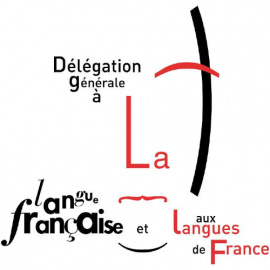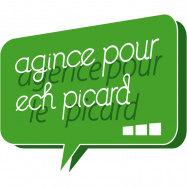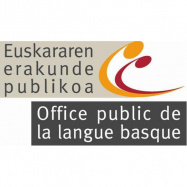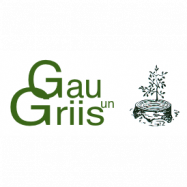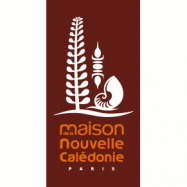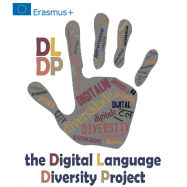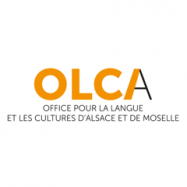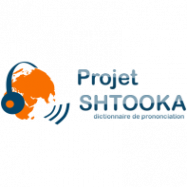LinguaLibre
Difference between revisions of "About/fr"
(Replaced content with "== Pourquoi participer ? ==") |
(Created page with "Lingua Libre vient du constat de plusieurs manques sur les projets Wikimedia et sur le web en général :") |
||
| Line 62: | Line 62: | ||
== Pourquoi participer ? == | == Pourquoi participer ? == | ||
| − | Lingua Libre | + | Lingua Libre vient du constat de plusieurs manques sur les projets Wikimedia et sur le web en général : |
* Lack of diversity: While the web is in theory open to everyone, its content is far from representing all languages proportionally. More than 50% of websites are in English; only 301 of the world's 7000+ languages have a free encyclopedia <sup>[https://w3techs.com/technologies/overview/content_language/all <nowiki>[1]</nowiki>]</sup>, with a content that is inferior in quality and quantity to those of more endowed languages such as Wikipedia in English<sup>[https://w3techs.com/technologies/overview/content_language/all <nowiki>[1]</nowiki>],[https://athenaeum.libs.uga.edu/handle/10724/37877 <nowiki>[2]</nowiki>]</sup>. In addition, these websites host content that broadly reflects and meets Western standards and needs through the medium of the written word, which explains and helps to perpetuate their lack of linguistic diversity. | * Lack of diversity: While the web is in theory open to everyone, its content is far from representing all languages proportionally. More than 50% of websites are in English; only 301 of the world's 7000+ languages have a free encyclopedia <sup>[https://w3techs.com/technologies/overview/content_language/all <nowiki>[1]</nowiki>]</sup>, with a content that is inferior in quality and quantity to those of more endowed languages such as Wikipedia in English<sup>[https://w3techs.com/technologies/overview/content_language/all <nowiki>[1]</nowiki>],[https://athenaeum.libs.uga.edu/handle/10724/37877 <nowiki>[2]</nowiki>]</sup>. In addition, these websites host content that broadly reflects and meets Western standards and needs through the medium of the written word, which explains and helps to perpetuate their lack of linguistic diversity. | ||
Revision as of 07:14, 4 November 2020
Lingua Libre est un projet de l’association Wikimédia France qui vise à construire un corpus multilingue audiovisuel collaboratif sous licence libre pour :
- enrichir le savoir sur les langues et dans les langues de manière audiovisuelle sur le web, sur les projets Wikimédia et en dehors ;
- soutenir le développement de communautés linguistiques en ligne — notamment celles des langues peu dotées, minoritaires, régionales, orales ou signées — afin de faciliter l’accès des communautés à l’information en ligne, et d’assurer la vitalité des langues de ces communautés.
Comment participer ?
Vous pouvez utiliser lingua libre en explorant et réutilisant des enregistrements, contribuer au corpus en enregistrant des mots, ou améliorer le site lui-même, en concertation avec la communauté.
L’onglet Record Wizard permet l’enregistrement, la catégorisation et la publication sur Wikimedia Commons d’enregistrements audio courts (1 mot, 1 locution) à partir d’un ordinateur ou d’un smartphone. Pour cela, il vous faudra vous connecter ou créer un compte d’utilisateur. Le guide d’utilisation est disponible sur la page d’aide.
Pour modifier les pages du site, il vous suffit de vous connecter et de cliquer sur modifier. Pour en ajouter, la manipulation comprend deux étapes : entrez le titre de la page que vous souhaitez créer dans le moteur de recherche, avec le préfixe « LinguaLibre: ». Un message vous proposant de créer la page s’affichera. Pour toute modification substantielle, merci de consulter la communauté en amont.
Pourquoi participer ?
Lingua Libre vient du constat de plusieurs manques sur les projets Wikimedia et sur le web en général :
- Lack of diversity: While the web is in theory open to everyone, its content is far from representing all languages proportionally. More than 50% of websites are in English; only 301 of the world's 7000+ languages have a free encyclopedia [1], with a content that is inferior in quality and quantity to those of more endowed languages such as Wikipedia in English[1],[2]. In addition, these websites host content that broadly reflects and meets Western standards and needs through the medium of the written word, which explains and helps to perpetuate their lack of linguistic diversity.
- Lack of orality: Although languages are essentially spoken (only 4,000 of the world's 7,000 languages have a writing system)[4], knowledge sharing and communication via new information and communication technologies (NICTs) is mainly done in writing, particularly on the web, despite the rich multimedia format it allows. This mediation of the oral through the written word raises many barriers to contribution, such as the use of Unicode characters, the culture of the written word, the orthographic standardisation of the language or the literacy rate of the community.
- These lacks of diversity and orality limit the ability of Internet users to communicate and contribute online to various web platforms where they cannot find content and communities sharing their language. Among the regional minority languages that are oral or signed, they threaten in particular the poorly endowed ones, many of which are currently in danger of extinction and for whom inclusion on the web is a major challenge and opportunity.
- Indeed, of the 7000 languages in existence today, it is estimated that only 2500 will survive to the next century and only 250 (less than 5%!) will make their digital ascent — i.e. be used regularly for communication purposes in the digital space by native speakers who are comfortable on the web — a factor which is yet essential for their vitality[5]. Current initiatives by linguists and activists to document and share data, resources and content online in the languages to be preserved do not directly contribute to the development of a digitally-ascendant linguistic community of Internet users, and thus remain limited in their impact.
- Lingua Libre aims to make up for this lack of support by placing itself at the service of linguistic communities wishing to insert and promote their language into the digital space by exploring alternative means of communication to the written word, in the hope that this will free up online communication in a growing number of languages. This objective favours by its very nature regional minority languages that are poorly endowed in terms of oral or signed language, but also benefits more endowed languages that wish to highlight their oral and visual aspects. To fulfil its mission, Lingua Libre offers an online solution for mass recording, leading to the publication of a collaborative multilingual audiovisual corpus under free licence, whose vocation is information through consultation, and revitalisation by triggering the contribution of new language communities on Lingua Libre and then outside.


